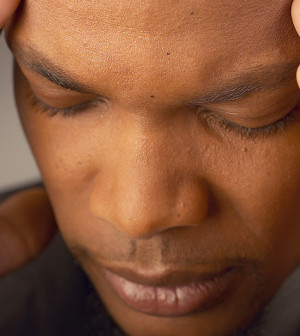- The Long-Term Effects of Daily Turmeric Supplements on Liver Health
- Could Your Grocery Store Meat Be Causing Recurring UTIs?
- Are You Making This Expensive Thermostat Error This Winter?
- Recognizing the Signs of Hypothyroidism
- 10 Strategies to Overcome Insomnia
- Could Artificial Sweeteners Be Aging the Brain Faster?
- Techniques for Soothing Your Nervous System
- Does the Water in Your House Smell Funny? Here’s Why
- Can a Daily Dose of Apple Cider Vinegar Actually Aid Weight Loss?
- 6 Health Beverages That Can Actually Spike Your Blood Sugar
Rest May Not Be Best for Kids After Concussion

Complete rest is a cornerstone of concussion treatment, but a new study indicates that physical activity within a week of a youth’s head injury may hasten recovery.
Concussed children and teens were less likely to have persistent symptoms four weeks later if they engaged in light aerobic exercise within the first seven days, according to the new research from Canada.
Under current guidelines for concussion management, pediatricians recommend a period of physical and mental rest until symptoms such as headache resolve.
The new findings “call into question the standard operating procedure where athletes have to be symptom-free before they are allowed to start exertion,” said Dr. John Kuluz.
Kuluz is director of traumatic brain injury and neurorehabilitation at Nicklaus Children’s Hospital in Miami. He wasn’t involved in the study.
Although the researchers found a link between early physical activity and fewer long-term symptoms, Kuluz said the study can’t prove cause-and-effect.
“I’m not really going to change my practice based on this,” he said. In reality, he said, a lot of doctors are already following this approach instead of advising total rest until symptoms disappear.
And no one is advising vigorous exercise, Kuluz said.
After a concussion, “I think getting up off the couch and moving, at low intensity, for short duration, one or two times a day, is important,” he explained. “It helps to reduce the deconditioning.”
He also added, “It has to be done on an individualized basis.”
Based on the finding, study author Dr. Roger Zemek said light jogging, walking or light activity on a stationary bike probably would be OK after a concussion.
Zemek is a senior scientist and director of the clinical research unit at Children’s Hospital of Eastern Ontario in Ottawa.
Beyond expert input, he said, “there is very little evidence” to support the advice to avoid physical activity after a concussion.
To see what effect activity might have on recovery, Zemek’s team analyzed data on more than 2,400 Canadian kids, ages 5 to 17, who suffered a concussion.
The researchers reviewed persistent post-concussive symptoms and levels of physical activity in the month after the head injury. Persistent post-concussive symptoms (PPCS) were defined as three or more symptoms, such as headache or problems thinking or learning.
After 28 days, 25 percent of those who engaged in early physical activity still had persistent or worsening symptoms, Zemek said. In the no-activity group, 44 percent still had symptoms. That difference was significant statistically, he said.
The study was published Dec. 20 in the Journal of the American Medical Association.
Zemek isn’t suggesting kids who suffer a concussion return to athletic play quickly.
“What I don’t want is someone to read this and say, ‘Oh, I will let Johnny play football tomorrow [right after a concussion] because there is no harm,'” he said.
Light physical activity early on may help reduce persistence of symptoms, Zemek noted.
While the study didn’t assess the best intensity or duration of exercise, Zemek thinks that engaging in light activity earlier than is currently recommended by many experts could have physical and psychological benefits.
The kids feel less like they are in jail at home, for one thing, he said.
This approach is used successfully in post-stroke patients, Zemek added, explaining doctors want them out of bed and moving as soon as possible.
Why does this seem to help? Zemek couldn’t say for sure, but said he suspects activity may increase blood flow to the brain, which can help healing.
More information
To learn more about concussions, head to the American Academy of Pediatrics.
Source: HealthDay
Copyright © 2026 HealthDay. All rights reserved.










